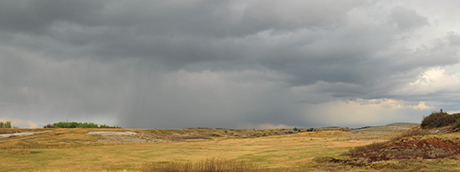A Legacy of Intergenerational Trauma

The mandate of the Truth and Reconciliation Commission of Canada (TRC) concludes in 2015. Over a five year period, the TRC has documented thousands of statements from residential school survivors and their descendants from across Canada. Designed to assimilate Aboriginal people into the dominant society, the residential school system forcibly removed children from their families, communities and culture, and educated them in the dominant society’s values, skills, culture, religion and language. The traumas experienced by many individuals during the residential school years have accumulated over time and been passed to subsequent generations, leaving a legacy of intergenerational trauma. Personal testimonies gathered by the TRC point to the emotional toll these traumas have inflicted on Aboriginal families and communities.
The National Collaborating Centre for Indigenous Health (NCCIH) explores the ongoing and devastating impacts of this accumulated trauma on the health and well-being of individuals, families, and communities, and presents one model for healing through the following two reports:

The first report in this two-part series, Aboriginal Peoples and Historic Trauma: The process of intergenerational transmission, recognizes that Aboriginal peoples’ experiences are rooted in multigenerational, cumulative, and chronic trauma, injustices, and oppression. The effects of trauma can reverberate through individuals, families, communities and entire populations, resulting in a legacy of physical, psychological, and economic disparities that persist across generations.
Aboriginal Peoples and Historic Trauma: The process of intergenerational transmission opens with an overview of the existing knowledge of trauma, how it is defined, and how it must be conceptualized within the context of Aboriginal people in Canada. It turns to a discussion of the characteristics and patterns of behaviour that are typical in Aboriginal families living with intergenerational trauma, as well as the psychological, physiological and social processes by which trauma can be transmitted. Finally, the report looks at the interconnectedness of these processes in transmitting trauma through the generations and calls for holistic healing strategies that are implemented not only within the health domain, but in other domains as well including education.

Using Blue Quills First Nations College (BQFNC) as a case study, the second report in this series, Addressing the Healing of Aboriginal Adults and Families within a Community-owned College Model, explores the potential for healing strategies within the education domain. It specifically examines how programs and curriculum have the potential to disrupt the intergenerational transmission of trauma within families who are the descendants of survivors of Canada’s residential school system.
The report begins with an overview of the history and legacy of the residential school system. It acknowledges how the schools contributed to deep social and psychological effects which perpetuate conditions of disadvantage, including the current educational gap between Aboriginal and non-Aboriginal Canadians. The impacts of trauma on learning, how expressions of trauma manifest in the classroom, and the factors considered important by researchers for improving the academic achievement of Aboriginal victims of trauma are then explored. The final section highlights the unique educational philosophy of BQFNC. This case study shows how a learning environment that includes culturally appropriate curriculum, the role of culture, the use of circular processes, and the incorporation of ceremony can empower Aboriginal students to transform their lives and rebuild family relationships. It offers up an example of how holistic learning and programming can heal and disrupt the intergenerational transmission of trauma.